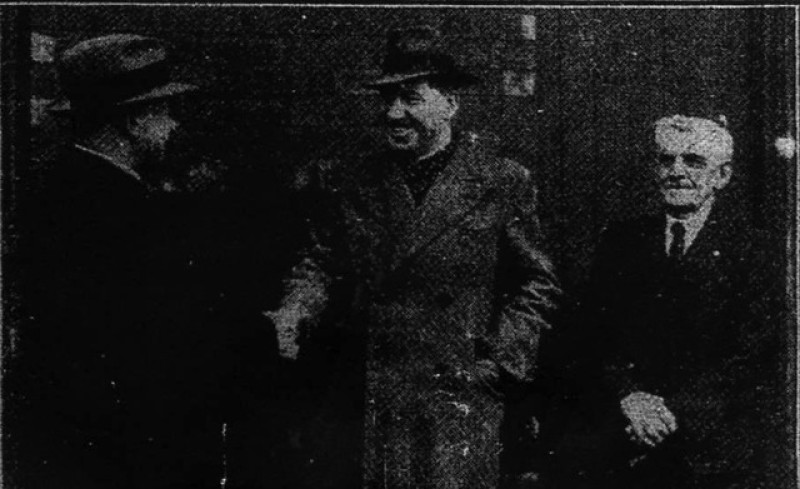If Barnsley suffer a ninth successive league defeat and equal the club record at Oldham tomorrow, what excuses might we hear?
We may be reminded again that the team has been through a run of bad luck, with injuries, poor refereeing decisions and an unusually high amount of 'worldie' goals counting against them. Maybe we'll be told that the club is developing a young side – one of the youngest in the country – and they must be given time to learn and improve. Or perhaps head coach Lee Johnson, usually quite honest in his evaluations, will not offer any excuses and simply apologise for the shocking and horrendous period that is scarring both his career and the club's history.
After all, he could not possibly provide an explanation to match the extenuating circumstances of the club's previous nine-match losing run in the 1952/53 season which followed the death of manager Angus Seed after a long battle with illness.
In the week following Armistice Day and Remembrance Sunday, it seems appropriate to look back on Seed's life. He was a player mainly in his native North East before serving with the Footballers Battalion in France during World War One. He received the Military Medal for bravery after carrying wounded to safety under fire at the 1917 Battle of Vimy Ridge. Among the many lives he saved was that of Tom Radcliffe, a Sheffield United player, who later worked as a coach at Oakwell.
Seed was wounded when flying shrapnel hit his right hip and the injury affected his playing career, eventually causing him to retire. He ventured into management with Aldershot, who he took into the Football League during a successful ten-year spell before moving to Barnsley in 1937.
Johnson can possibly take heart from the fact that Angus' first full season with the Reds was a disaster as they were relegated. But, decades before the managerial merry-go-round started to force managers out of jobs almost every time they go through a bad run, Seed was given the chance to rebuild and did so in spectacular style.
The Reds won the Division Three North title in 1938/39, conceding just 34 goals in 42 games – still a club record – and losing only five matches. That team, which included future Reds manager Johnny Steele, is considered to be one of the best in the club's history with many fans who witnessed them believing that they would have gone on to reach the top flight if World War Two had not broken out.
When the Football League restarted seven years later, Seed was still the Barnsley manager and rebuilt the club while creating a team that competed well in the Second Division. His policy was to recruit young and untested players with potential and develop them into major talents, something the current Reds hierarchy is trying to emulate with considerably less success.
Seed brought in Oakwell heroes such as future Chile international George Robledo, legendary winger Johnny Kelly and Danny Blanchflower who went on to be one of Tottenham Hotspur's all-time greats. He was also instrumental in the development of future England star and Busby Babe Tommy Taylor as he came through the youth teams.
While Taylor's tragic death in the 1958 Munich Air Disaster is rightly remembered, it is less well-known that Seed's life also ended all too soon five years earlier. He had been suffering from chronic bronchitis for two years before he was admitted to Kendray Hospital and died two days later on February 7, 1953 – the day after his 60th birthday.
The team's form had been suffering as Seed's health failed and the death of their leader of 17 years and 338 games ripped the heart out of the club. Barnsley did not win another game that season after his death, losing nine in a row in March and April before finishing bottom of the Second Division by 15 points in the days of two for a win.
Seed's replacement Tim Ward eventually got the Reds back into the second tier but he was in charge during the 1958/59 season when they lost eight games in a row, a record equalled by Johnson's men against Port Vale on Saturday.
While Seed's story serves to put losing a few football matches into perspective, it also reminds us that Barnsley FC has had so many loyal and colourful characters during its rich history which makes it even more sad to see the Reds apparently spiralling down the divisions and potentially setting records for the worst sequences of results. Hopefully we will not be hearing any excuses between 5 and 6pm tomorrow in Oldham, and instead discussing the end of a woeful run.




























